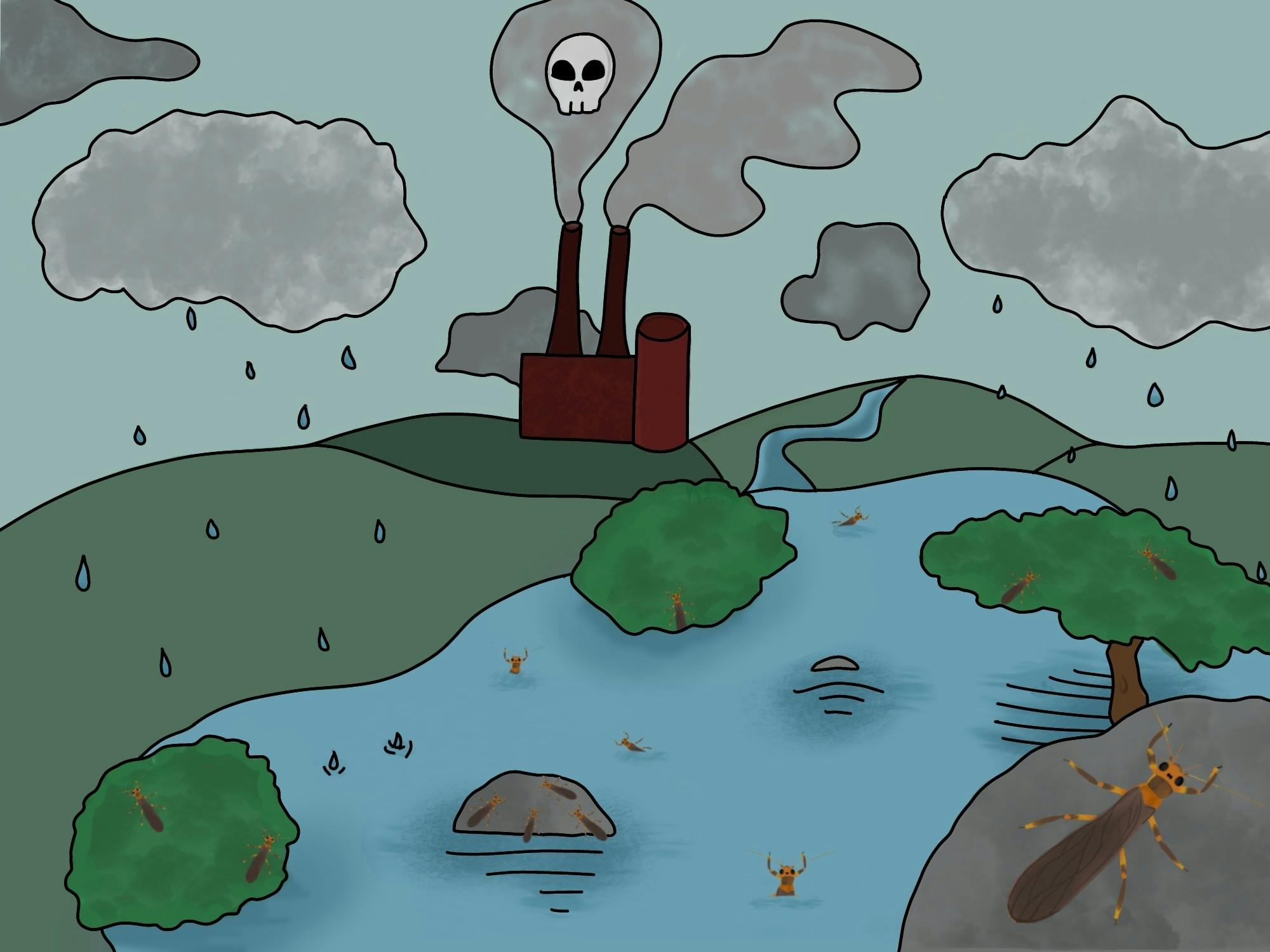High in the snowy mountains, in a place that looks inhabitable for life, there's an aquatic insect that lives in the water that melts off glaciers.
This insect, called the meltwater stonefly, is in danger because the place it calls home is rapidly disappearing.
That's why Alisha Shah, a Michigan State University evolutionary ecology professor, is working to understand the biology of the insect to understand if they can withstand the growing climate crisis, she said.
“The amount of snow isn’t enough," Shah said. "These streams that kind of melt off the snow are slowly disappearing. They’re getting warmer of course, but they’re also just disappearing."
Shah said we don't know anything about how meltwater stoneflies living in these streams are dealing with the change. In order to find out, researchers must study their ability to deal with "heat stress," she said.
As an ecological physiologist, Shah studies how organisms and their physiology interact with their environment to make predictions about how those organisms will deal with change in the future.
For this research, Shah and her team have been looking at a meltwater stonefly that is found in Glacier National Park in Montana. They've been monitoring this insect for a long time but still have no idea how it's going to deal with the steadily increasing temperatures across its life cycle.
To get a better idea, they collected insects from the stream and brought them back to their lab where they subjected the insects to different temperature treatments. They allowed the insects to carry on with their normal life cycles at temperatures that are warmer than usual.
By doing this, Shah and her team were able to discover that meltwater stoneflies can withstand exposure to much higher temperatures than what they would typically face in nature.
Shah collaborated with Utah State University professor Scott Hotaling to co-design the project. Together, they came up with the idea for a longer-term thermal tolerance experiment to discover the stonefly's ability to adapt to the higher temperatures.
“It just adds another important layer to our understanding of how climate change will impact aquatic biodiversity,” Hotaling said.
The first round of experiments was able to demonstrate to the team how these insects reacted to heat exposure over a short period of time, but as Hotaling describes, they needed to determine how they react to long-term exposure as it's more realistic to what is happening to these habitats.
"You can’t just dip in and out of warm temperatures, and so that’s why we decided to take another step further and actually look at how they develop and a longer timeline of what warming might mean,” Hotaling said. “It was the first time, as far as I know, that any high elevation, aquatic species, insect or otherwise, has been actually held in a laboratory setting and experimentally tested for thermal tolerance.”
Although the meltwater stonefly can withstand higher temperatures, a more consistent warming similar to the kind caused by climate change could prevent them from properly maturing and reproducing.
Shah’s research isn’t only unique to meltwater stoneflies. She said the findings of her research can be applied to other systems as well, including stoneflies in other regions that are similar to the meltwater stonefly.
Some people might look at the flies and say, "they're just insects," Shah said, but they play a vital role in the ecosystems that they're in.
“I dedicate my work ... to trying to figure out how they’re responding to these massive changes that are occurring that are human caused, and what we could potentially do to mitigate those,” Shah said.
Support student media!
Please consider donating to The State News and help fund the future of journalism.
Discussion
Share and discuss “MSU researchers discover how meltwater stoneflies adapt to warmer temperatures before it's too late ” on social media.







